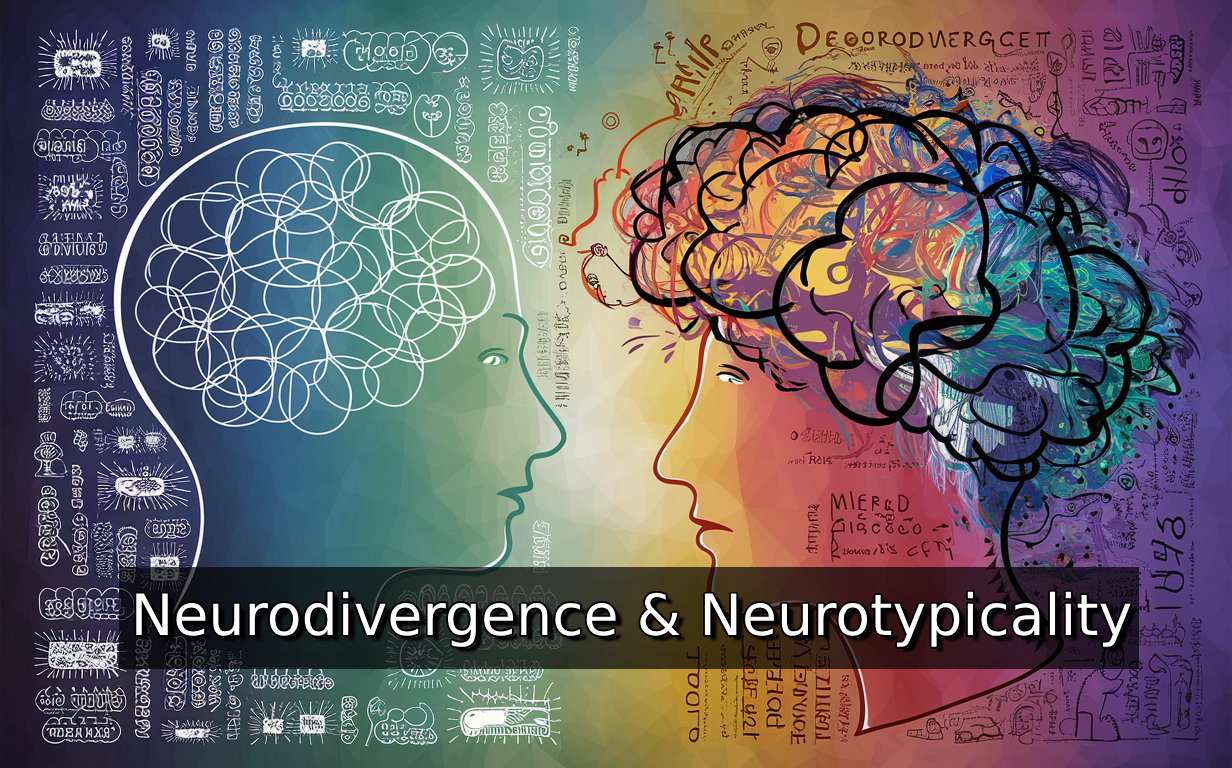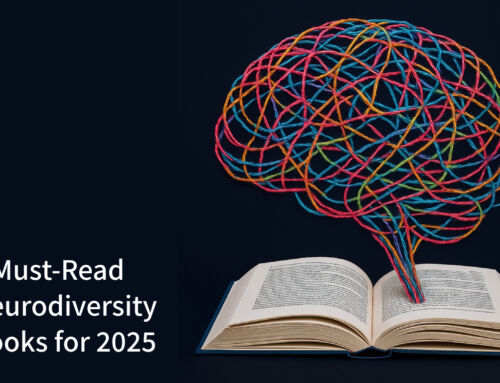Understanding Neurodivergence and Neurotypicality
Let’s dive into the world of neurodivergence, explore the differences between neurodivergent and neurotypical individuals, and understand how therapy can support both.
What Does It Mean to Be Neurodivergent?
Neurodivergence refers to the condition of having a brain that functions differently from what society considers “normal” or “typical.” It encompasses a wide range of neurological variations, including conditions like autism, ADHD, dyslexia, and more. Rather than viewing these differences as disorders, the concept of neurodiversity celebrates them as integral parts of human diversity.
Neurotypical vs. Neurodivergent: The Key Differences
Neurotypical Individuals:
- Think and process information in ways typical within their culture.
- Reach developmental milestones around the same time as their peers.
- Exhibit social and organizational skills similar to their peers.
- Tolerate sensory discomfort (e.g., loud noises) without significant difficulty.
- Adapt to changes in routines and focus for prolonged periods.
- Have varied interests or hobbies typical for their age.
Neurodivergent Individuals:
- Process information differently from the societal norm.
- May have conditions like autism, ADHD, or dyslexia.
- Experience unique cognitive, behavioral, and affective presentations.
- Challenge the idea of a single “normal” way of understanding and interacting with the world.
The Challenges Faced by Neurodivergent Individuals
Being neurodivergent comes with both strengths and difficulties:
Struggles in Social Interaction and Communication:
- Neurodivergent individuals may find it challenging to pick up on non-verbal cues, understand metaphors, or express themselves effectively.
- Social norms and unspoken rules can lead to misunderstandings and frustrations.
Sensory Sensitivities:
- Some neurodivergent individuals experience heightened sensitivity to sensory stimuli (e.g., lights, sounds, textures).
- Coping with sensory overload can be overwhelming.
Executive Functioning Differences:
- Organizing tasks, managing time, and planning can be more complex for some neurodivergent individuals.
Minority Stress and Intersectionality
Minority Stress:
- The cumulative traumatic effect of discrimination faced by marginalized groups.
- Can lead to trauma symptoms, including PTSD or complex trauma.
- Example: A transgender person of color faces intersecting identities vulnerable to discrimination and trauma.
Intersectionality:
- Overlapping or intersecting social identities (e.g., LGBTQ+ and ethnic minority).
- Accumulation of historical trauma due to multiple identities.
Neuro-Affirming Therapy and ACT
Neuro-Affirming Therapy:
- Views neurodivergence as potential strengths rather than deficits.
- Rejects the idea of a single “normal” brain functioning.
- Empowers neurodivergent individuals by reducing stigma and fostering self-acceptance.
Acceptance and Commitment Therapy (ACT):
- Mindfulness-based therapy.
- Helps individuals accept painful thoughts and feelings effectively.
- Encourages value-based decisions and positive movement forward.
- Particularly beneficial for neurodivergent clients.
In summary, embracing neurodiversity allows us to appreciate the beautiful variations in how our brains work. By affirming neurodivergence and providing effective therapies like ACT, we can create a more inclusive and compassionate world for everyone. 🌈
Contact now
Ready to take the first step towards positive change? Contact me now for more information and to schedule an appointment. Whether you prefer in-person sessions in Tel Aviv or virtual meetings via Zoom, my integrated approach of Cognitive Behavioral Therapy (CBT) and Acceptance and Commitment Therapy (ACT) can help you break free from struggles and find greater fulfillment in life. I'll be sure to get back to you as soon as possible. Let's embark on this transformative journey together!
Call Whatsapp 052-2325511
Or fill out the following form.
Can ACT and CBT assist you or your loved ones?
Welcome to my therapy practice, where I offer a powerful combination of Cognitive Behavioral Therapy (CBT) and Acceptance and Commitment Therapy (ACT) techniques. CBT is a goal-oriented, short-term approach that's highly effective for anxiety, depression, low self-confidence, and more. ACT complements CBT, helping you navigate life's challenges and find fulfillment and authentic, happier life.
If you're struggling with anxiety, depression, low self-image, or facing setbacks, CBT combined with ACT may be the key to transforming your life. Break free from the struggle and take a step towards a happier, more fulfilling life.
Contact me today to schedule an appointment and embark on your journey of positive change. You don't have to face it alone; I'm here to support you every step of the way. Let's work together to create the life you deserve!





